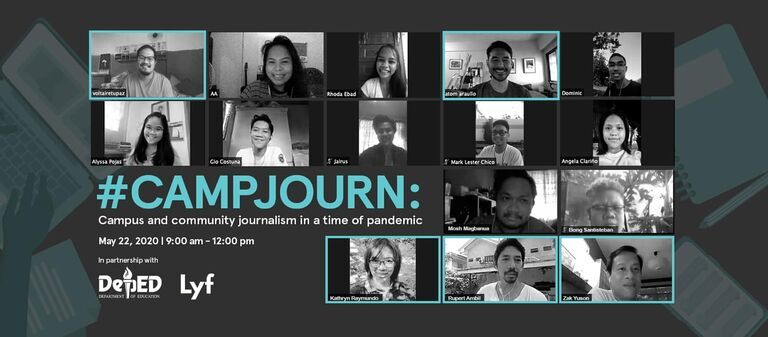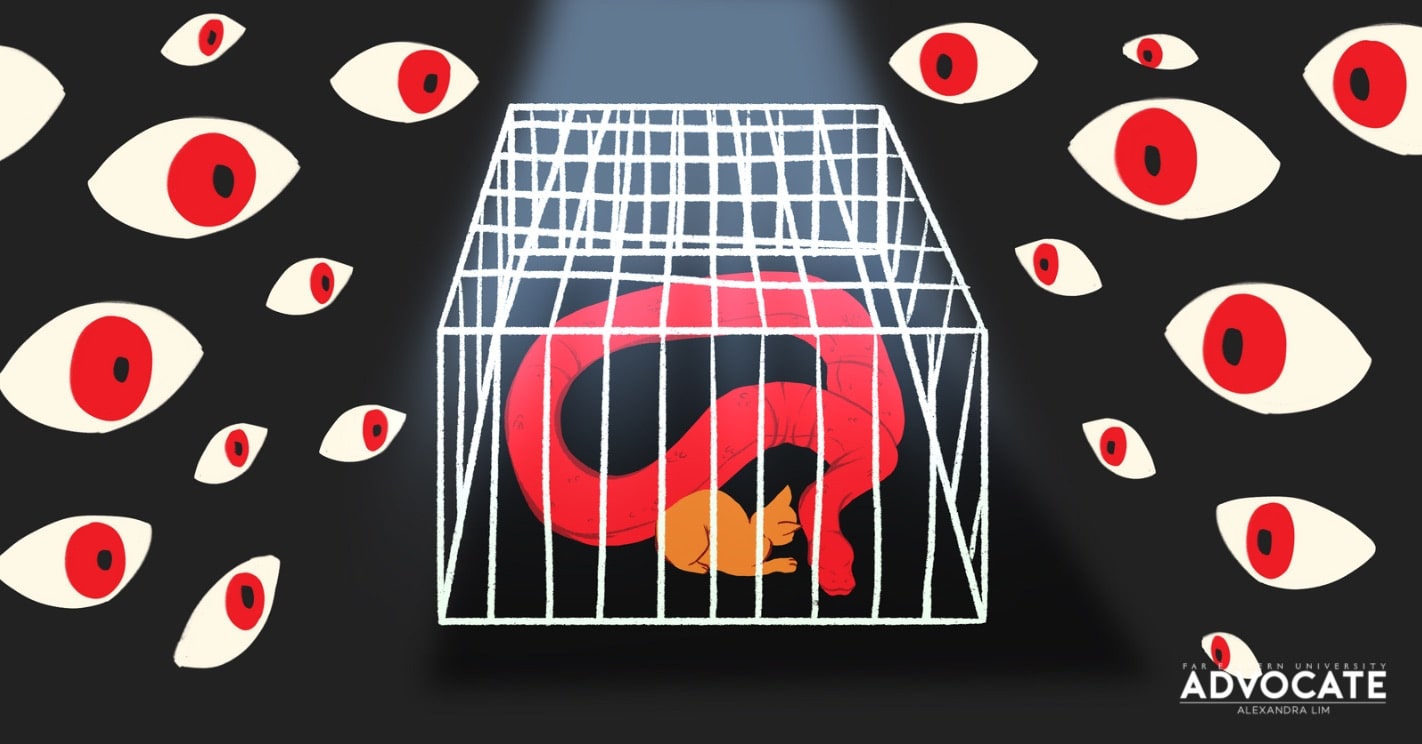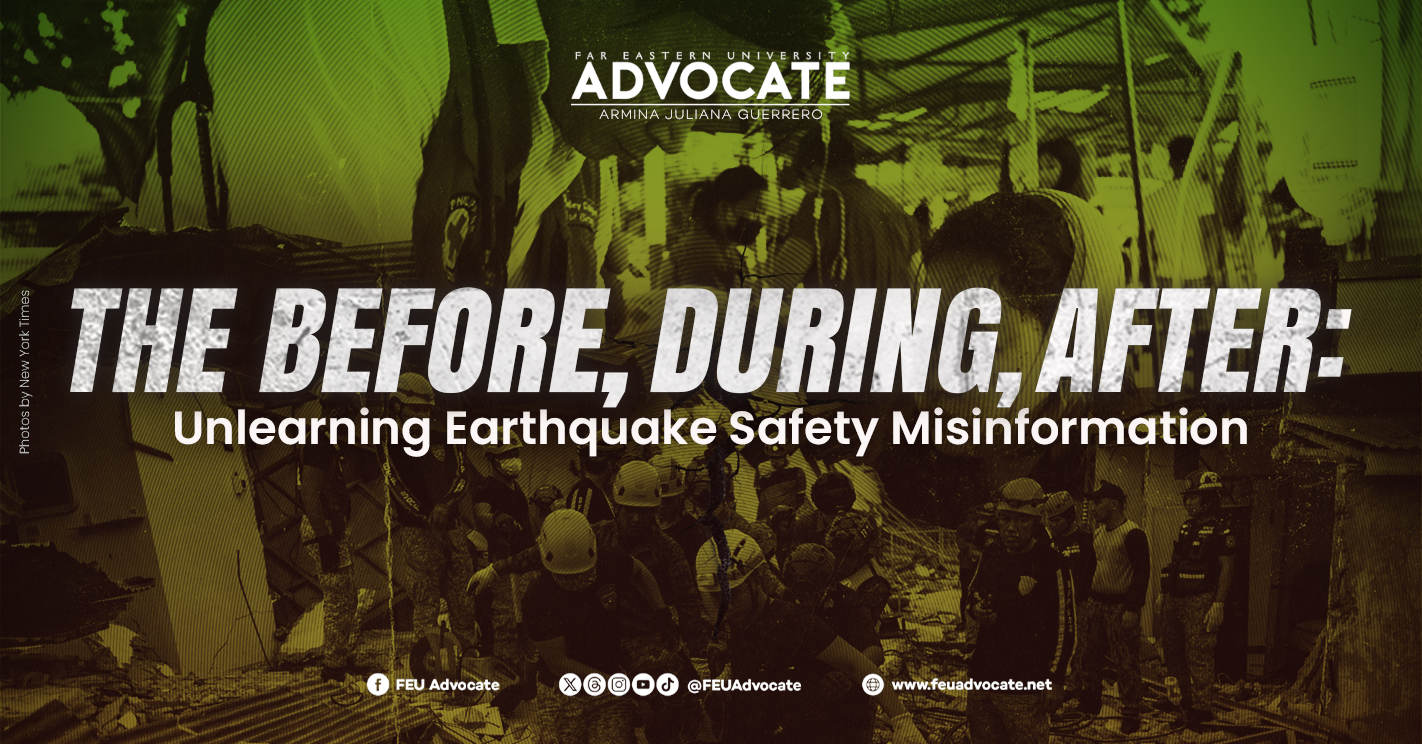
Webinar ‘CampJourn’, idinaos bilang pagpapaigting sa pagbabalita
- May 24, 2020 10:40
FEU Advocate
August 01, 2024 16:58

By Mark Vincent A. Durano
The House Committee on Higher and Technical Education approved the motion to create a technical working group (TWG) to further investigate campus press freedom violations (CPFVs) following the congress hearing of the House Bill No. 1155 or the Campus Press Freedom (CPF) Bill last July 29.
The TWG shall discuss distinct cases of student publications regarding publication fees, freedom of speech, and other concerned issues.
Kabataan Partylist Rep. Raoul Manuel sponsored the bill along with the Makabayan bloc in the 19th Congress. However, it has been 13 years since it was first filed in 2011, then later refiled in 2013 and 2016.
Moreover, the bill seeks to repeal the existing Republic Act No. 7079 or the Campus Journalism Act of 1991 for its insufficiency to protect the welfare of campus journalists.
Under the proposed bill, student publications must be established in both public and private elementary, secondary, and tertiary level institutions.
The existing “insufficient, outdated, and toothless” act also lacks provisions to prevent administrative intervention on fund allocation, content publication, and editorial policies.
Subsequently, the College Editors’ Guild of the Philippines (CEGP) has recorded at least 1,000 cases of CPFVs since 2010 and 206 CPFVs from June 2023 to July 2024.
CEGP classified censorship, administrative intervention, withholding or looting of funds, non-mandatory collection of publication fees, expulsion or suspension, harassment, libel, red-tagging, and state surveillance as common forms of violations.
“These violations of campus press freedom happened under the guise of unnecessarily tedious bureaucratic processes which upon closer scrutiny are exposed as schemes in silencing student publications that publish incisive stories and articles linked with the struggle of those in their university or their educational institutions,” Manuel stated in his sponsorship speech.
The proposed bill also provides that CPF violators will be sanctioned with “a fine of not less than P100,000 but not more than P200,000 or imprisonment of not less than one year but not more than five years, or both at the discretion of the court or both upon conviction.”
Meanwhile, CEGP National Spokesperson Brell Lacerna presented the guild’s position paper, underlining the importance of student journalists in honing students’ critical thinking skills.
“It is a pivotal and transformative education program for critical thinking, especially that writing is a basic language skill taught in schools... Sila [campus publications] po ay biktima ng mga (They are victims of) campus press freedom violations, it is also repressing such basic things that we are taught in schools,” Lacerna cited.
University of the Philippines (UP) Solidaridad Executive Vice Chairperson Justin Daduya and Union of Journalists of the Philippines - UP Chairperson Guinevere Latoza also urged to pass the CPF Bill in the hearing.
“Ang boto para sa bill ay hindi lang boto para sa campus press, boto ito para sa katotohanan. At higit lalo boto ito para sa mga taong kailangan na kailangan ang katotohanang aming kinukwento (The vote for the bill is not just a vote for campus press, this is a vote for the truth. Most especially, this is a vote for the people who really need the truth through our stories),” Daduya said.
Some publications in their university are not also recognized, thus unable to receive funding and were forced to close.
Latoza emphasized that attacks on student journalists are not just physical but may also happen in the cyberspace.
“That is also a big deal especially for student publications na ‘yung presence na nga lang po nila ay (whose presence are only) online because they don’t have money to print the news that the students need to read,” she stated.
Committee Chairperson Mark Go clamped that student publications in UP’s degree-granting units might not be funded as their budget will be further narrowed down.
He asserted that publications should not only publish “negative” articles and should rather find a balance in written articles.
“Sinasama rin ninyo 'yong mga magagandang nangyayari sa iba't ibang mga unibersidad… Kailangan ihayag din n’yo 'yan very objective, ‘yung kabuuan, ‘di lamang ‘yung isang parte na panay negatibo ang lumalabas (You should also add good things that different universities do… You have to also publish the entirety objectively, not only one negative part),” he said.
Daduya and Latoza responded stating that even campus journalists have to follow journalistic ethics and defended how staffers aim to objectively analyze issues concerning the community.
The committee tasked all concerning bodies to present their position papers not later than this week.
(Photo courtesy of Congress of the Philippines)









